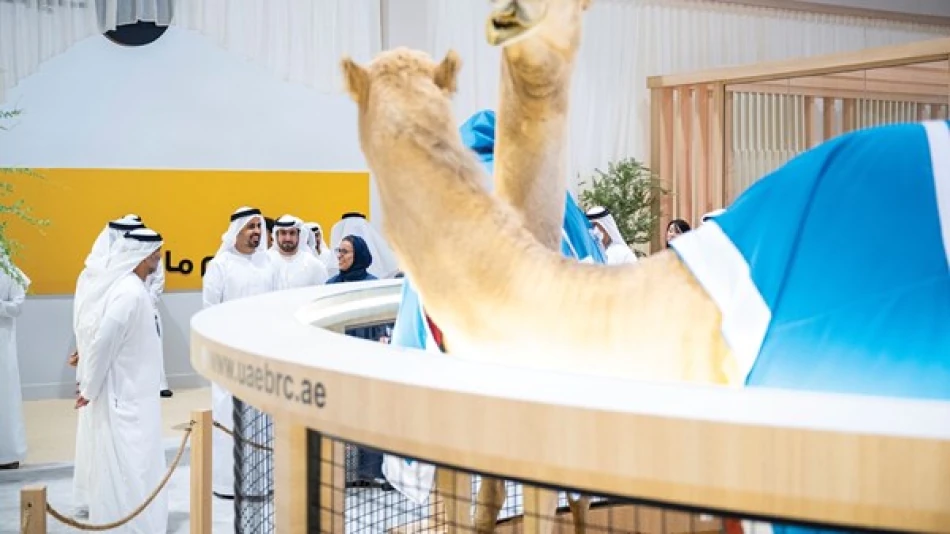
Crown Prince Sheikh Dhiab Visits Abu Dhabi's Premier Hunting and Equestrian Exhibition
UAE Reinforces Cultural Diplomacy as Abu Dhabi Hunting and Equestrian Exhibition Draws 68 Nations
The UAE's commitment to preserving traditional heritage while fostering international partnerships took center stage as Sheikh Dhiyab bin Mohammed bin Zayed Al Nahyan toured the 22nd Abu Dhabi International Hunting and Equestrian Exhibition. The event, featuring participants from 68 countries across 15 sectors, underscores the Emirates' strategy of using cultural events to strengthen diplomatic ties and position itself as a global hub for tradition-meets-innovation initiatives.
Strategic Cultural Positioning
Sheikh Dhiyab bin Mohammed bin Zayed Al Nahyan, Deputy Chairman of the Presidential Court for Development Affairs and Martyrs' Families, conducted an extensive tour of the exhibition at ADNEC Abu Dhabi. His presence signals the UAE leadership's recognition of cultural events as soft power tools that enhance the nation's international standing.
The exhibition's focus on innovation, sustainability, and heritage preservation reflects broader UAE policy priorities that seek to balance modernization with cultural authenticity—a formula that has proven successful across various sectors from tourism to finance.
International Participation Signals Growing Influence
The participation of 68 countries represents a significant diplomatic achievement for Abu Dhabi, positioning the emirate as a neutral ground where diverse nations can engage in cultural exchange. This approach mirrors successful strategies employed by other Gulf states, but Abu Dhabi's emphasis on traditional sports and hunting culture offers a unique differentiator.
Economic and Tourism Implications
Such large-scale international exhibitions generate substantial economic benefits beyond immediate tourism revenue. They establish Abu Dhabi as a preferred destination for specialized events, creating long-term partnerships and recurring business relationships. The UAE's investment in world-class exhibition infrastructure through venues like ADNEC positions it to compete with established hubs like Singapore and Dubai.
Heritage as Soft Power Strategy
The UAE's approach to cultural diplomacy through traditional sports represents a sophisticated understanding of how heritage can serve modern geopolitical objectives. Unlike purely commercial exhibitions, events celebrating hunting and equestrian traditions tap into shared cultural values across Arab, Central Asian, and European societies.
Sheikh Dhiyab's praise for the event's organization and international participation reflects satisfaction with the UAE's growing ability to attract and host diverse international communities around shared interests, rather than purely economic incentives.
Regional Competition and Positioning
This exhibition success occurs as Gulf states increasingly compete for cultural and diplomatic influence. While Qatar focuses on sports mega-events and Saudi Arabia pursues entertainment and tourism diversification, the UAE's emphasis on traditional heritage events offers a complementary strategy that reinforces its role as a cultural bridge between East and West.
The sustained growth of this exhibition over 22 editions demonstrates the UAE's long-term commitment to cultural diplomacy, suggesting that such events will continue expanding as key components of the nation's international engagement strategy.
Most Viewed News

 Layla Al Mansoori
Layla Al Mansoori






